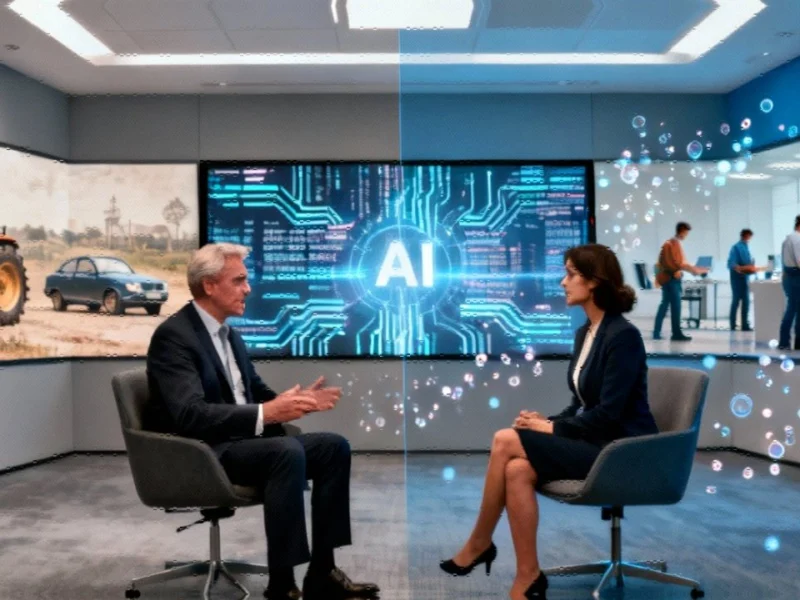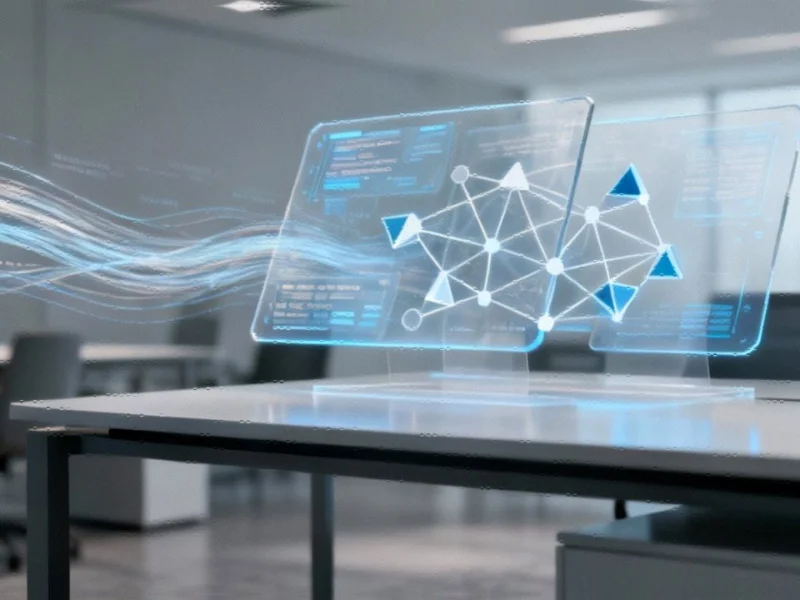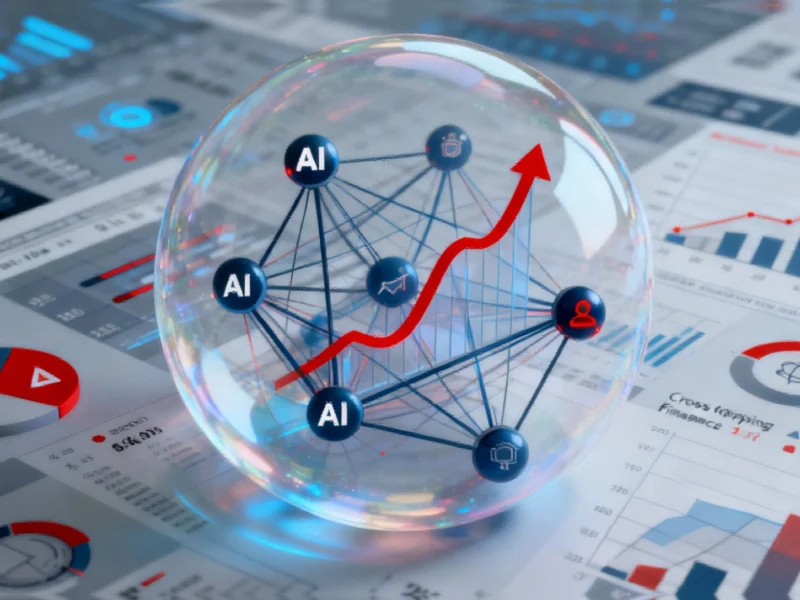Note: Featured image is for illustrative purposes only and does not represent any specific product, service, or entity mentioned in this article.
AI’s Inevitable Impact on Employment: A Wake-Up Call from JPMorgan’s CEO
JPMorgan Chase CEO Jamie Dimon has delivered a stark warning about artificial intelligence’s transformative effect on the workforce, stating that those who doubt AI-driven job losses are inevitable “should stop sticking their head in the sand.” In a candid discussion with Fortune Editor-in-chief Alyson Shontell, Dimon drew historical parallels to previous technological revolutions, noting that “it will eliminate jobs” just as tractors and automobiles did in their respective eras.
The banking executive’s comments come at a crucial juncture in AI implementation across industries, with businesses grappling with both the potential and the disruption of these powerful technologies. Dimon emphasized that society must confront this reality head-on rather than avoiding the difficult conversations about workforce transformation.
The Coming Workforce Revolution: Why Preparation Matters
Dimon painted a vivid picture of the social consequences if the transition isn’t managed properly. “You can’t just take all these people and throw them on the street where the next job is, you know, making $30,000 a year when they were making $150,000,” he cautioned. “You’ll have a revolution.” This stark assessment underscores the urgency for comprehensive planning around workforce displacement and retraining initiatives.
The JPMorgan CEO outlined several potential solutions currently under consideration, including upskilling workers for new AI-based technical roles, providing income assistance during transitions, facilitating early retirement options, and implementing major retraining programs. These approaches reflect a growing recognition among business leaders that technological advancement must be balanced with social responsibility.
AI’s Transformative Power: Beyond the Hype
Despite the workforce challenges, Dimon remains bullish on AI’s fundamental value proposition. “Underlying the [AI] hype is a real technology that is extremely transformative and powerful,” he stated. He compared AI’s development trajectory to other milestone technologies that eventually became better, faster, and cheaper, enabling significant operational scaling across industries.
JPMorgan has already invested approximately $2 billion in AI and machine learning technologies, deploying them across various functions including fraud detection, behavioral pattern identification, legal analysis, regulatory compliance, and business efficiency enhancement. The bank’s experience demonstrates how AI-driven process improvements can create tangible value, though quantifying specific productivity gains remains challenging at this early stage.
Strategic Implementation: JPMorgan’s AI Playbook
Dimon revealed that the banking giant has developed its own internal AI models that have significantly improved procedures and processes. While these efficiency gains may lead to reduced headcount in certain areas, the CEO emphasized that now is “absolutely time to go” in terms of AI investment and thorough review of implementation across all business units.
The bank has focused extensively on internal training, with executives developing expertise in document processing, fraud pattern recognition, and database correlation. This hands-on approach reflects Dimon’s practical advice to businesses: “So, use it. Get good at it. Make it part of your tool set and your weapon set.” This philosophy of practical AI integration represents a balanced approach to technological adoption.
Broader Industry Implications and Parallel Developments
The workforce transformation discussion extends beyond banking, with industry developments in technology sectors showing similar patterns of adaptation. As companies navigate these changes, understanding the full scope of AI’s impact becomes increasingly important.
Recent related innovations in artificial intelligence continue to push boundaries, creating both opportunities and challenges across sectors. The pharmaceutical industry is experiencing its own transformation, with market trends indicating significant AI adoption in drug discovery and development processes.
Infrastructure plays a crucial role in supporting these AI initiatives, as evidenced by recent technology advancements in data storage and management solutions designed specifically for AI workloads. These parallel developments highlight the ecosystem-wide nature of the AI transformation.
As this comprehensive analysis demonstrates, Dimon’s warnings about AI-driven job market changes represent a critical conversation that business leaders across all sectors must engage with seriously. The coming years will test organizations’ abilities to balance technological advancement with workforce stability, making strategic planning and responsible implementation essential for sustainable success.
The AI revolution is no longer speculative—it’s underway, and as Dimon suggests, the time for preparation and adaptation is now. Businesses that proactively address these challenges while leveraging AI’s transformative potential will be best positioned to thrive in the coming era of intelligent automation.
This article aggregates information from publicly available sources. All trademarks and copyrights belong to their respective owners.



